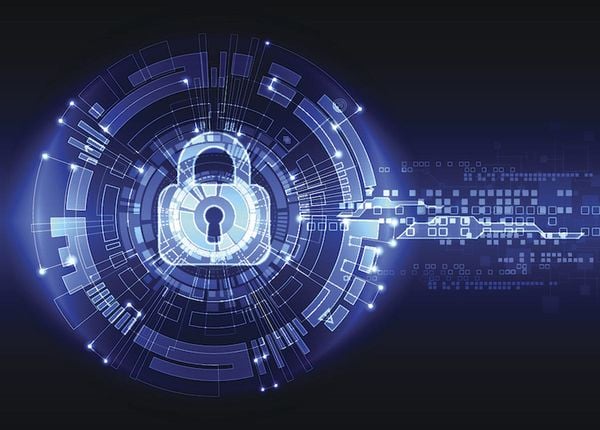
Ways to Define and Execute the Best Data Science and AI Solutions for Your Business
February 27, 2020
Why Internet Satellites Will Replace Subsea Cable Technology
March 4, 2020Today we rely on smart technology for many aspects of our lives. Most of us have a smartphone in our pockets that would make a desktop 20 years ago laughable. Our smart homes are equipped with smart assistants, smart doorbells, smart security systems, smart televisions, smart thermostats and more.
Smart devices and automation are making our lives easier, but does it come at a price? Do you ever think about your privacy or is the convenience just so convenient that it doesn’t bother you? Smart devices are here to stay. We will break down some of the best technologies that make our life easier, and also discuss how to be smart with your smart devices.

Photo Source: techrepublic
How to Be Smart with Your Smart Devices
Through your smart devices, you are always connected. Making sure that your devices are protected is imperative to your safety and privacy. Here are a couple of steps to follow to ensure your security.
Many devices including your router, smart doorbells, and security cameras come with a default password. This should be changed before you start using it. Anything that connects to your home network will usually come with a default password that should be changed right away.
Inevitably, you will eventually have guests over at your house, and many times these guests will ask to use your home WIFI. Although most of these visitors will be people you know, it’s smart to set up a separate WIFI for your guests. By doing this, you can isolate it from your home WIFI so it’s harder to hack into your system. It is also recommended to set up a security key if your router supports it.
Protect your home computers. But a couple of flash drives or portable hard drives depending on how much room you need for your data. Only use these drives for backups. So when your system gets attacked by crypto-malware, your data is backed up. If it is connected while your system is attacked, the first thing that is attacked is the backup which could potentially keep your actual drives safe. Being prepared to wipe and restore your system if it gets compromised can be beneficial.
Set up good passwords for your online system and online accounts. Here are a couple of good rules to incorporate for creating a good password. Your password should be a minimum of 12 to 14 characters long. The longer the password the better in most cases. You should always use a mixture of numbers, symbols, capital letters, and lower-case letters. Try to stay away from obvious normal dictionary words or a combination of dictionary words. And don’t use obvious substitutions. Replacing an o with a 0 will not make your password a strong password.
We do a lot of transactions online, so we are bound to making purchases on the web. For your security, do not use your deb
it card online. Using a credit card or a banking app that allows a one-time use credit card number for your purchase would be better. If you somehow get scammed, your complete bank account isn’t at risk. You will only have to report the transaction and not the card itself.

Photo Source: engadget
How Does Data Collection Work with Smart Devices?
Each device that is connected will produce and send data to the device manufacturer. Some believe smart home device makers are giving your data to the government, and these manufacturers won’t confirm. All of our smart assistants, Alexa, Google Home, etc. all have microphones that are listening 24 hours a day and 7 days a week. Can you imagine all of the things your microphones pick up? Important and private conversations you have with visitors or even with people over the phone, your private thoughts when spoken out loud talking to yourself. Any voices, noises, whispers, or even mumbling can be picked up by these smart devices.
You also have cameras throughout your house built into your computers, laptops, phones, and other smart devices. These devices (especially smart devices) can see, record, and save this data. Do you ever wonder what manufacturers do with the data they collect? Now, most of this data is used by manufacturers like Amazon, Google, and Apple to make our smart device requests better as we continue to use them. But having all of our private thoughts stored on servers can be quite burdensome.
All data can be stolen and abused by cyber-criminals. Protecting yourself is crucial to your privacy. Changing some of the settings and clearing smart device history can help with this.

Photo Source: techrepublic
How to Protect Your Data Privacy
Do you ever find yourself looking at social media, and an advertisement comes up for a product or brand you were just talking about? This is because certain manufacturers are using these recordings and sending them out to third parties who then send you ads. Our phone’s smart assistants are always listening to you. Turning off Siri or Google’s assistant on your phone can stop some of these targeted ads and protect your privacy at the same time.
When it comes to the Amazon Echo, the easiest way to continuously delete past data is by saying, “Alexa, delete everything I said today.” You can also go into the settings of your Alexa app and delete the history there as well.
Amazon employees around the world are listening to us and making transcriptions to make the usability better in the future, but if you can stop this by going into the Alexa Privacy section of the app and turn off “Help Develop New Features”.
For Google Assistant, you can stop the device from recording your voice. Go into the settings and turn off “Okay Google” detection.
Conclusion
Our homes are getting smarter every day, but there are security implications to having smart assistants at our beck and call. There are certainly pros and cons of having home assistants and knowing how these to affect you is important. There should be a balance between convenience and security. If you use these smart devices, make sure you know the settings of each device and what they do. You should also never connect your debit card to your smart devices. Connecting a credit card is better than connecting your bank account to these devices.
Smart homes and smart devices will continue to be a part of our everyday lives but knowing how these devices work and how to set each device up to protect your privacy is important.

1 Comment
Glad to come across this very informative article! Thanks a lot for sharing this.